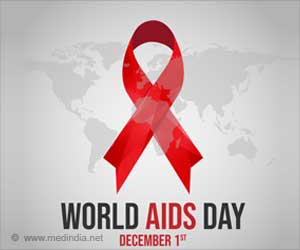World population day is observed on July 11, globally, to enlighten people about the issues related to population growth.
- World population day is celebrated on July 11 each year
- The objective of celebrating this day is to promote attention towards population issues
- The theme for world population day 2021 is Rights and choices are the answer: Whether baby boom or bust, the solution to shifting fertility rates lies in prioritizing the reproductive health and rights of all people
Read More..
When did it Start?
World population day was proposed to be celebrated as an extension of the Day of Five Billion (July 11, 1987), on which the world population reached five billion. In 1990, the UN General Assembly decided to promote awareness regarding population issues on this day and declared this day as a special one by resolution 45/216. The first world population day was commemorated on July 11, 1990, in more than 90 countries.Facts on Global Population Trends
- There are now more than 7,800,000,000 people on planet Earth
- By 2024 India will overtake China as the world's most populous country
- Nigeria is currently 7th on the list of most populous countries, but before 2050 it will have made third place, overtaking the US
- From 2017 to 2050, India, Nigeria, the Democratic Republic of the Congo, Pakistan, Ethiopia, the United Republic of Tanzania, the United States of America, Uganda, and Indonesia will contribute the most to population growth
- Average global lifespans have risen, from 64.6 years in the early 1990s to 72.6 years in 2019.On a worldwide level, life expectancy is projected to grow to around 77 years in the period between 2045 and 2050
Why Does Population Matter, and What Does this Day Add up to?
The rise in population affects the economic development and social protection of a country. It also negatively impacts universal access to healthcare and educational facilities.World population day encourages activities that promote awareness related to reproductive health and family planning. Knowledge about global issues like maternal and baby health conditions, human rights violations, gender inequality, adolescent pregnancies, and sexually transmitted infections are created among the general public. The main aim of this day is to enhance the overall awareness of population-related issues on various themes annually.
Theme for 2021
This year's World Population Day theme is Rights and choices are the answer: Whether baby boom or bust, the solution to shifting fertility rates lies in prioritizing the reproductive health and rights of all people.Since 2020, COVID-19 has compromised access to healthcare facilities, particularly in sexual and reproductive health, around many parts of the world. Gender-based inequities like child marriage and female genital mutilation have been worsened during lockdowns. A significant amount of women left their jobs due to family responsibilities, destabilizing their finances, not just for now but in the long run.
Thus, this year on world population day, United Nations Population Fund emphasizes that women must be empowered educationally, economically, and politically so that they can make their own choices over their bodies and fertility.
What Can We Do to Promote Reproductive Health and Curb Population Growth?
- Providing comprehensive sex education according to the age of an individual
- Promoting awareness about sexually transmitted diseases
- Promoting women empowerment across various sectors
- Expanding the access to contraceptives
- Nurturing sexual and reproductive rights of every human despite any differences
References:
- World Population Day 11 July - (https://www.un.org/en/observances/world-population-day)
- World Population Day 2021 - (https://sdg.iisd.org/events/world-population-day-2021/)
- World Population Day - (https://vikaspedia.in/health/health-campaigns/important-days/world-population-day)
- Do you know these 10 surprising world population facts? - (https://www.one.org/us/blog/10-surprising-population-facts/)
- Our population has become so large that the Earth cannot cope - (https://populationmatters.org/the-facts)
- 11 facts about the world's changing population - (https://www.weforum.org/agenda/2017/07/11-facts-about-world-population/)
Source-Medindia











